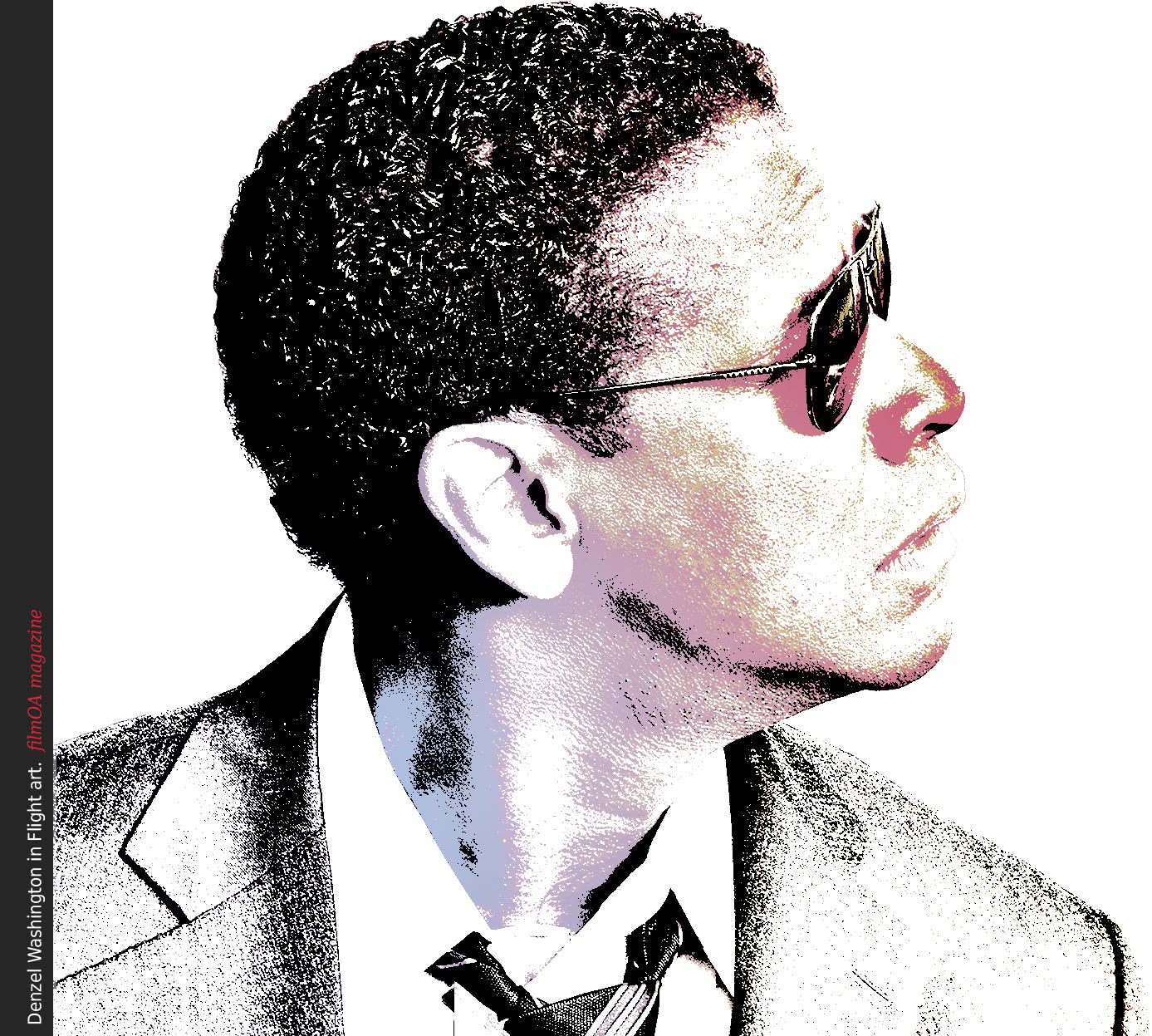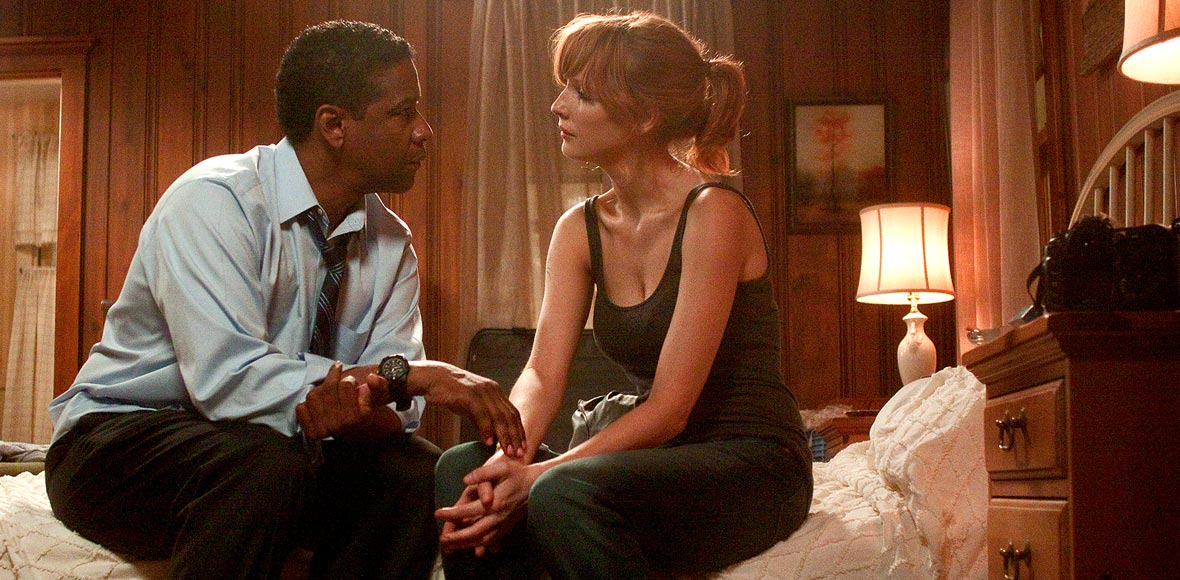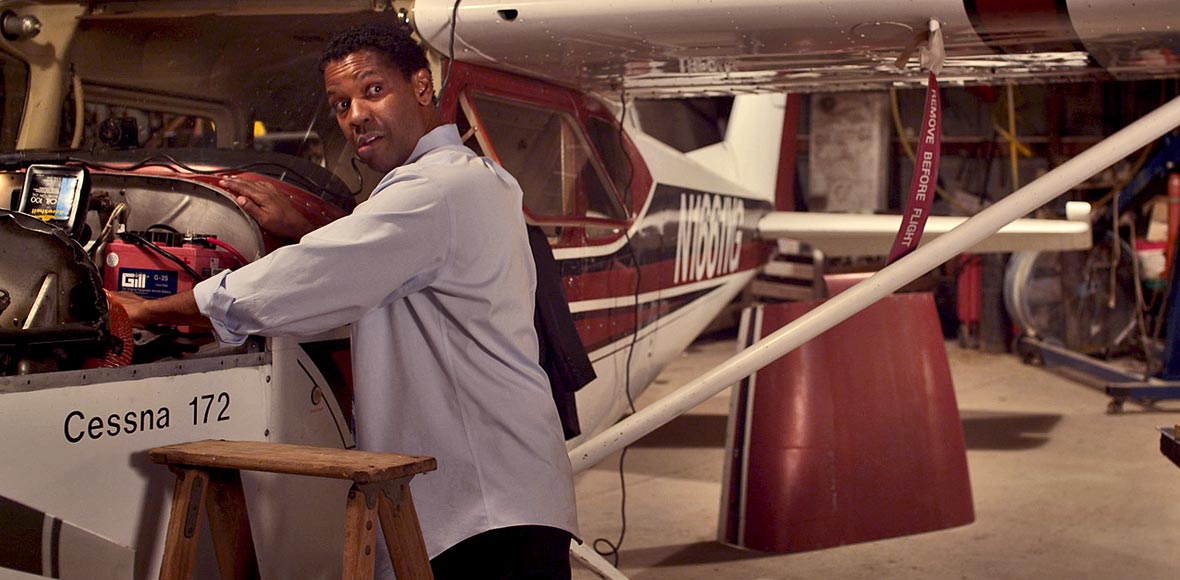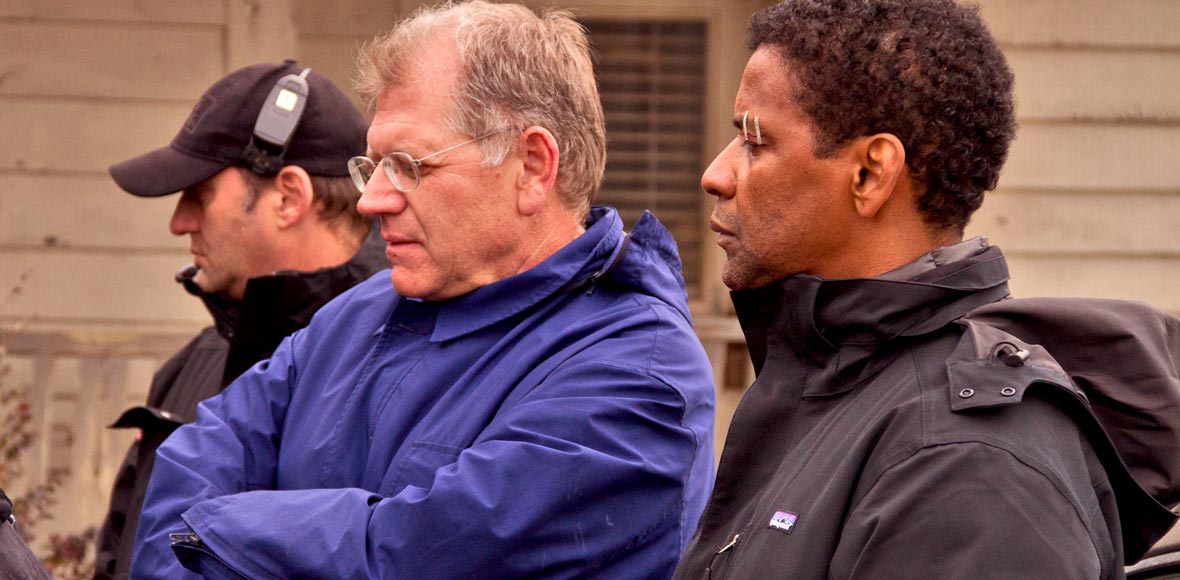Latest
Contact
filmOA v2.0

filmOA | reflection
text Sam Thorne
Robert Zemeckis is a relatively popular director. Having directed such works as the Back to the Future trilogy, Who Framed Roger Rabbit and Forrest Gump, Zemeckis boasts quite a strong filmography. And he generally has a lot of acclaim for a typical mainstream director. Many of his films have been rapidly accepted into the tapestry of modern popular culture. But the same can not be said for his most recent release Flight. There’s one clearly identifiable theme in Robert’s filmography. All of these films are sensational, in the realm of make believe and high fantasy. As a result of this, the highly realistic drama Flight is grounded in reality and very much set in the real world. Protagonist Walt Whipman (Denzel Washington) feels like a real person with very real problems, with addiction to alcohol and frequent substance abuse. However, as gripping and original as the story is, the story folds to old cliches and overused conceits audiences have seen too many times before.
The story entails a commercial air-line pilot Walt Whipman. The night and morning before his flight, Walt has numerous alcoholic beverages some of which consumed on the aircraft via it’s beverage compartment. In addition, he also snorts a sizable amount of cocaine along with his female stewardess Katerina (Nadine Velazquez). The aircraft experiences mild turbulence but soon after the craft begins to fail and dive downwards as numerous things go wrong with the aircraft, including engine failure, and extensive wing damage. Via several evasive maneuvers involving flipping the plane, flying upside down and dumping the fuel, Walt manages to glide the craft so it lands relatively smoothly with a bare minimum of casualties, which by anyone’s estimation is a miracle. The authorities clean up. This process involves a blood toxicology report for every member of crew on the aircraft. They immediately discover Walt has been drinking on the flight, but the report is thrown out due to a very fringe loop-hole discovered by incredibly efficient lawyer Hugh Lang (Don Cheadle).
At this point the narrative is mostly logical, with a firm understanding of procedure in regards to the plane crash and to the toxicology report. Drama films like Flight that focus on a feasible situation grounded in reality must maintain verisimilitude. If not, a lot of the dramatic tension and effect is broken when we stop believing or identifying with these characters. The performance does a lot to this extent, with Denzel pulling out one of the greatest performances of his career as Walt. However, the love interest in the form of Nicole Maggen (Kelly Reilly) is where this logical and interesting story starts to become very samey and cliche’d. Kelly is a fine actor, and it does show in parts in Flight, however the problem here is purely in the writing and directing.
They introduce a love interest in the form of Nicole. They meet in the hospital after the crash. However, after literally no time at all she moves in with him. And almost instantly she’s reformed after a few AA meetings.There’s little to no screen-time which shows this. And then almost immediately, she begins to spurn Denzel for his addiction as he’s unwilling to change and leaves. I understand why having all of his loved ones leave is a narrative plot-point. And considering Katerina died in the crash and he doesn’t speak to his son they had to introduce one. However, that’s not a feasible arc of development. She immediately sobers up instantly with no hiccups and then begins to judge Walt for his addiction? Especially considering she was a junkie and an addict too and should understand Walt’s plight more. When we first meet Nicole she was a desperate junkie who couldn’t pay rent, because she’s a heroin addict and now suddenly she’s the moral majority?




In addition to that story line oversight, the ending is one of the most narrow conceits for a film ending I’ve seen in a while. At first I didn’t mind it when I first saw and reviewed it. But then I gave it some thought and listened to some comments from others and it made me realize it just screamed “I don’t know how to end this film properly!” Walt is checked into a hotel by his attorney and friend from the pilots association (Bruce Greenwood) and left to himself for the night. The two certain if he stays sober he can pass the meeting tomorrow as they legally have no evidence. Walt considers drinking from the minibar as he starts to crave it. And he does inevitably as we see him passed out drunk the next morning. They scramble and get to the meeting, as Walt lies through his teeth until the ultimate moment, in which the accuser asks “In your opinion, do you think Katerina Marquez drunk the vodka from the commercial trolley?” The service wasn’t available on board, meaning one of the crew had to have done it. So after lying ever since it happened, suddenly that’s the trigger as Walt admits he drunk and he is an alcoholic. Then we cut to him in prison after 13 months as his son visits him, writing an essay on his father and his exploits.
That’s a classic Hollywood change of heart, with literally no character motivation what so ever. We’ve already established that Walt is willing to lie. Why does he care about his moral compass? It didn’t stop him endangering millions of lives on a daily basis. Or from neglecting his son who doesn’t have a father figure. For me that, tied with a few other conceits, took a real interesting story and made it really cliche’d. It made it just ‘another film’ in my mind, as the narrative wool just slowly unwound in my head. Flight was nominated for two academy awards. One for best actor for Denzel Washington (which was a deserved nomination for a hell of a performance) and one for best original screenplay. The premise and idea of Flight and the character of Walt and how it progresses is great, but the important moments of emotion and narrative conclusion are sloppy at best. You could suggest it’s Zemeckis ineptitude, with his fascination with special effects and inability to really care about the finer details. The script had potential, but ultimately it didn’t pan out in my eyes. It’s definitely still worth a watch for Denzel Washington’s performance, but it’s certainly a shame for all the potential flight had, it just didn’t stick the landing. 

72%
worth the popcorn